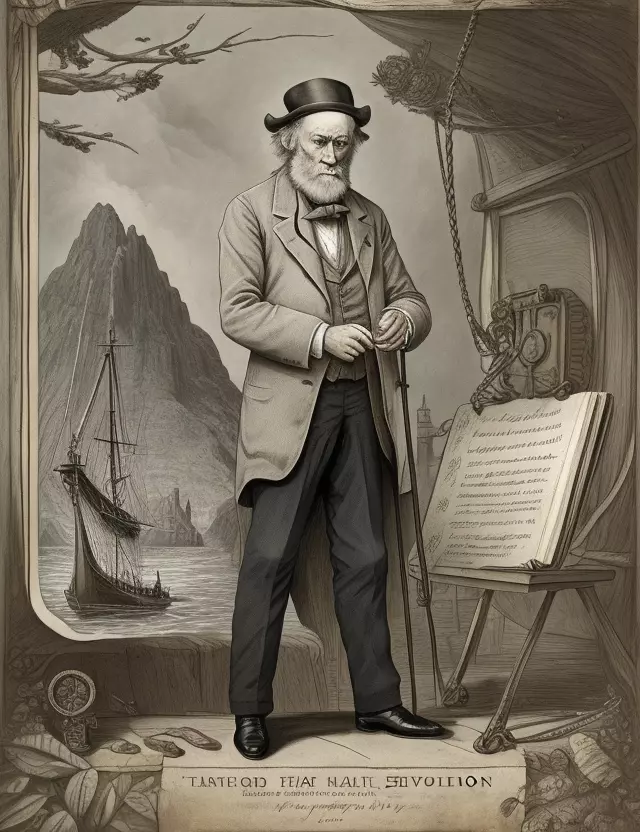Charles Darwin's Historic Voyage: Aboard the HMS Beagle
Contributions to the Theory of Evolution (1831-12-27)

Charles Darwin's Historic Voyage: Aboard the HMS Beagle
On December 27, 1831, Charles Darwin embarked on a historic voyage aboard the HMS Beagle, setting sail on a journey that would significantly impact the field of natural science. This expedition played a pivotal role in the development of Darwin's groundbreaking theory of evolution.
The HMS Beagle Expedition
The HMS Beagle, a Royal Navy ship, set sail with Darwin on board for a five-year journey around the world. The primary mission was to conduct hydrographic surveys, but the voyage provided Darwin with the opportunity to make extensive observations in geology, paleontology, anthropology, and, most notably, biology.
Scientific Contributions
During the voyage, Darwin meticulously documented the flora, fauna, and geological features of the places visited. His keen observations and collection of specimens, including finches from the Galápagos Islands, led to profound insights into the variability of species. These observations laid the groundwork for his later theory of evolution by natural selection.
Galápagos Islands and Evolutionary Insights
One of the key stops on the voyage was the Galápagos Islands, where Darwin noted variations in species from island to island. His observations of finches with different beak shapes, adapted to the available food sources on each island, were instrumental in formulating his ideas on natural selection—the driving force behind evolutionary processes.
The Origin of Species
Upon his return to England in 1836, Darwin continued to develop his ideas, eventually publishing "On the Origin of Species" in 1859. This seminal work presented the theory of evolution by natural selection, challenging prevailing views on the fixity of species and becoming a cornerstone of modern biology.
Legacy and Impact
Charles Darwin's voyage on the HMS Beagle and his subsequent scientific contributions revolutionized our understanding of the natural world. His theory of evolution has had a profound and enduring impact on biology, anthropology, and the broader scientific community, shaping the way we comprehend the interconnectedness of all living organisms.
Commemorating December 27, 1831
As we reflect on December 27, 1831, we honor the commencement of Charles Darwin's transformative voyage aboard the HMS Beagle. This historic journey laid the foundation for evolutionary biology, and Darwin's legacy continues to influence scientific thought to this day.



